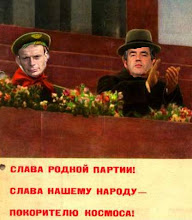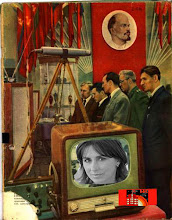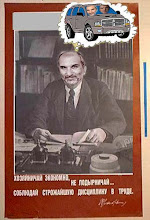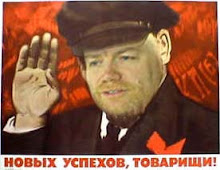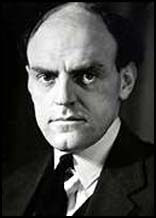A BBC Pioneers special report asks - could this be the end of King Crudd?
For nearly forty years following the second world war the intellectual and political powerhouses of Britain were fuelled by CRUDD.
Britain's huge reserves of CRUDD were dug up by a tough and dedicated band of workers, slaving in hazardous conditions with little more than a typewriter or TV studio - and little reward at the end of a hard shift except the satisfaction of seeing massive piles of CRUDD dominating the political landscape as far as the eye could see.
An old NUJ hand reminisces exclusively to BBC Pioneers about those golden days:-
"...everything ran on CRUDD in them days. Radio, TV, Newspapers, Nationalised Industries - even whole cities like Liverpool, Birmingham and most of London - it were enough to mak yer proud.
The big CRUDD pits were t'Daily Herald, before it went, t'Mirror, t'Grauniad and biggest and best of all, t'Beeb.
Tha' were two Beeb pits, the old Broadcasting 'ouse were more traditional and then t'new TV Centre with all automation an' such, they 'ad the best qualtiy CRUDD by far. "

Old Beeb Pit No. 1 -Broadcasting House

New Beeb Pit No 2 - TV Centre
"...Tha' were plenty of half decent stuff from the north, but quality were a bit mixed, tha' were even more from t'Russia and such but it were crude and not a patch on the Beeb stuff. Beeb CRUD burned clear and bright and kept you warm for years 'til that bloody woman an' that Murdoch came along - and we started hearing about privatisation, north sea gas,Sky TV, alternative energy an all t'other rubbish. "

"...Some o' the lads and lasses that dug the stuff were legends.
Tha' were "Big John" Humphrys
and "Gentleman Jim" Naughtie who'd be on the Toady shift at four in the morning and staggering out of the taxi afterwards with their throats parched and their fingertips bleedin' from the keyboard. "

Jim & John at the CRUDD face
Now, however, with other sources of politcal energy ever more easily available from the widening range of new communications media, demand for the old product is falling and there is even speculation that the age of CRUDD could finally be drawing to a close.
As circulations have fallen, there have already been hard times at the Guardian and Mirror pits and The Old New Statesman just managed to struggle on with a new owner. Finally the biggest and deepest CRUDD mine of all is under threat and redundancies loom at the Beeb.
In the houses lining the crowded little streets of Shepherds Bush, Islington and Camden, the womenfolk/significant others turn their pale anxious faces to the doors as they wait for news of their menfolks' jobs.
Will there still be food on the table at the River Cafe next week? What about January's skiing? Will the nanny's car have to go?
Some have already had the bad news; in "Gentleman" Jim Naughties' cottage, his wife sluices the grime of the days work from his massive, sinewed body and a tear splashes into the jacuzzi:-

"Don't fret lass, we're not finished yet - summat'll turn up you'll see, Tha's still call for the old stuff in some places. Some of the young'uns wi' facial hair are goin' to try Cuba and ah've heard tell there's even work for us old'uns in North Korea"
"But Jim, I've heard all they get there is one room and a bowl of pickled cabbage a day."
"Aye, It'll be hard to start with luv - but once we get our party cards, 'appen it'll be just like t'Beeb again, you'll see."
But for many redundant BBC staff, there may be a glimmer of hope. BBCP has exclusively obtained a leaked draft press release of a possible agreement between the corporation and one of China's biggest importers and recyclers of western rubbish.
In return for a reasonable fee China's multibillion turnover Fat Bung Corp will take over all contractual employment and pension obligations of scrap redundant BBC employees and guarantee to recycle redeploy them into roles, no less productive or rewarding than their previous ones, in one of its rubbish tips environmental renewal centres. The company feels that the rewarding nature of the work, combined with the opportunity to experience first hand the political system they have long admired will prove an attractive and stimulating career development for all those involved.

Redeployed BBC staff enjoy their new roles












